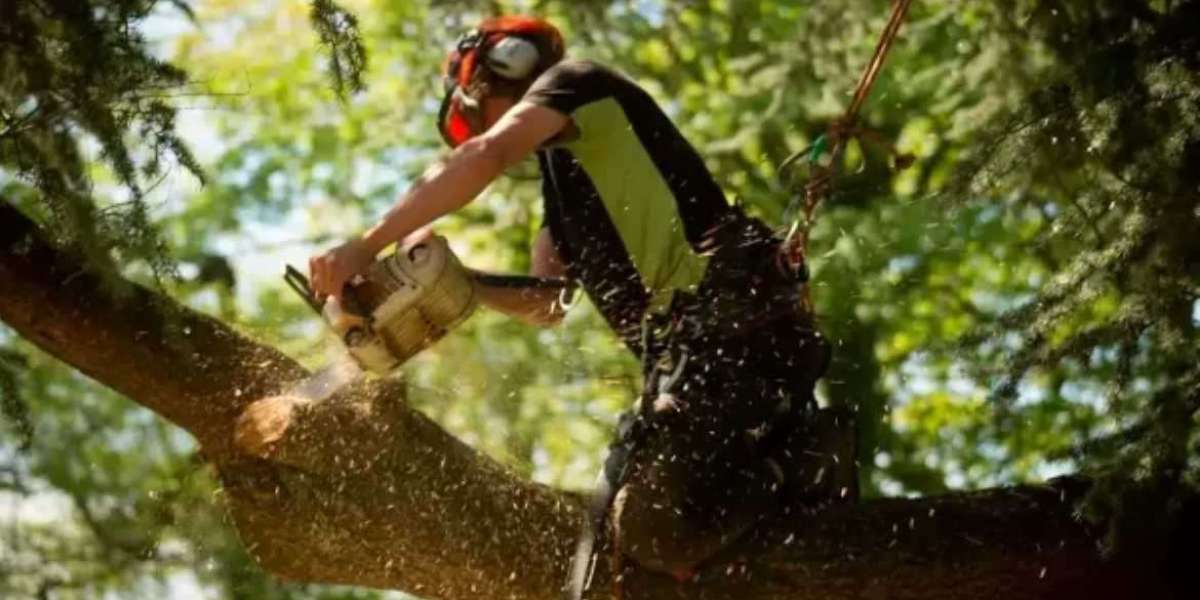Trees are more than just nature’s decoration. They clean the air, offer shade, add value to properties, and even improve mental well-being. But like any living thing, they need regular care. That’s where professional tree care services come in—keeping your green giants healthy, strong, and beautiful.
Why Tree Care Matters More Than You Think
Neglected trees can become safety hazards. Dead limbs fall. Roots damage property. And pests? They love an unhealthy tree. Proactive tree care isn't a luxury—it's a necessity.
The Role of Professional Tree Services
Tree care experts know exactly what your trees need, when they need it. From trimming to soil treatments, they ensure your landscape remains both stunning and safe.
Understanding Tree Care Services
What’s Included in Tree Care?
Tree care goes beyond just trimming. It involves inspecting tree health, managing soil nutrition, controlling pests, and ensuring structural integrity—all to extend the life and vitality of your trees.
The Difference Between Tree Care and Landscaping
Landscapers handle grass, shrubs, and garden beds. Tree care specialists (often certified arborists) are trained in tree biology, disease management, and safe cutting techniques.
Core Tree Care Services You Should Know
Tree Trimming and Pruning
Trimming encourages healthy growth and keeps trees safe by removing weak or dead limbs. Pruning also shapes the tree and improves airflow through the canopy.
Tree Removal
Sometimes, a tree is too far gone. Whether it's diseased, storm-damaged, or dangerously leaning, professional removal ensures safety without harming surrounding plants or property.
Stump Grinding
Leftover stumps can be eyesores—and tripping hazards. Stump grinding eliminates them efficiently, allowing space for new plantings or lawn.
Tree Planting
Planting a tree sounds simple, but choosing the right species, location, and depth takes expertise. Done right, your tree will thrive for decades.
Soil Management and Fertilization
Healthy trees start with healthy soil. Tree care services often include soil testing, aeration, and customized fertilization plans.
Seasonal Tree Care Tips
Spring Preparation
Spring is growth season. It’s the perfect time for pruning, pest checks, and soil treatments to boost nutrient absorption.
Summer Monitoring
Heat stress, drought, and pests peak in summer. Professionals can install watering systems and apply pest control as needed.
Fall Clean-up
As trees shed their leaves, it’s time for inspection and cleanup. Fall pruning prepares your trees for the winter ahead.
Winter Protection
Freezing temperatures and snow can damage limbs. Winter tree care includes inspections, bracing, and trimming weak branches.
How to Choose the Right Tree Care Company
Certifications and Qualifications
Look for ISA-certified arborists and companies with insurance. It shows credibility and protects your property from liability.
Experience and Specialization
Choose a service with proven experience, especially with the types of trees in your area. Ask how long they've been in business.
Customer Reviews and Guarantees
Check online reviews, ask for before-and-after photos, and always get a written estimate and warranty.
Common Tree Issues and How Experts Solve Them
Tree Diseases
From root rot to canker disease, tree illnesses can spread fast. Experts identify and treat them early with fungicides or pruning.
Pests and Infestations
Borers, aphids, and scale insects can drain a tree’s vitality. Tree care specialists use eco-friendly solutions to eliminate them.
Structural Damage or Leaning Trees
Trees with damaged trunks or unstable roots may need bracing, cabling, or—in extreme cases—removal.
Residential vs. Commercial Tree Care Services
Tree Maintenance for Homeowners
Homeowners benefit from routine trimming, health checks, and emergency response for storm damage or hazards.
Tree Care for Business Properties
Commercial tree care often includes large-scale maintenance, lot clearing, and beautification for customer-facing landscapes.
The Environmental Impact of Proper Tree Care
Promoting Air Quality
Healthy trees filter pollutants and carbon dioxide, making the air cleaner and fresher for everyone.
Erosion Control
Strategically placed trees stabilize soil and reduce runoff, especially on slopes and near water bodies.
Wildlife Habitat Support
Healthy trees provide shelter and food for birds, squirrels, pollinators, and other vital wildlife.
Safety and Risk Management
Preventing Property Damage
Dead limbs and leaning trees can damage homes, cars, and power lines. Regular tree inspections help you avoid disaster.
Emergency Tree Services
Storm blew a tree into your driveway? Many companies offer 24/7 emergency services to clear the way and keep you safe.
The Cost of Tree Care Services
Price Breakdown by Service
Trimming: $150–$500 per tree
Removal: $400–$2,000+ (depending on size and location)
Stump Grinding: $100–$300
Fertilization: $75–$200
Tree Planting: $150–$500 per tree
Budgeting for Long-Term Tree Health
Routine care may seem like an expense, but it prevents costly damage and keeps your landscape investment thriving.
DIY Tree Care vs. Hiring a Pro
Risks of DIY Tree Maintenance
Without proper tools or knowledge, you can injure yourself—or your tree. Tree cutting is one of the most dangerous household tasks.
When It’s Time to Call the Experts
If your tree is taller than your roof, leaning, or diseased—call in the pros. They’ll handle it safely and efficiently.
Benefits of Routine Tree Maintenance
Healthier Trees, Longer Lifespans
Routine care keeps trees strong, reduces stress, and prolongs life.
Improved Curb Appeal
A neat canopy and trimmed limbs make your entire property look more polished and inviting.
Higher Property Value
Well-maintained trees can boost home value by up to 20%. They’re an asset—not just a backdrop.
Conclusion
Your trees are silent partners in creating a beautiful, safe, and eco-friendly property. With professional tree care services, you’re not just trimming branches—you’re investing in a living, breathing part of your home or business. Whether you’re planting a new sapling or protecting a decades-old oak, expert help ensures your trees stay healthy and your property stays safe. Don’t leave your trees to chance—give them the care they deserve.
FAQs
1. How often should I have my trees trimmed?
Generally, every 1–3 years depending on species, growth rate, and condition.
2. What’s the best time to plant a new tree?
Early spring or fall, when the weather is cool and the tree can establish roots without stress.
3. Can tree care services help with diseased trees?
Yes, many services include disease diagnosis and treatment options to save or safely remove sick trees.
4. Do I need a permit to remove a tree?
In many areas, yes—especially for large or protected species. A tree service company can help with the process.
5. Are tree care services worth the investment?
Absolutely. They protect your property, improve your landscape, and save money by preventing future problems.



